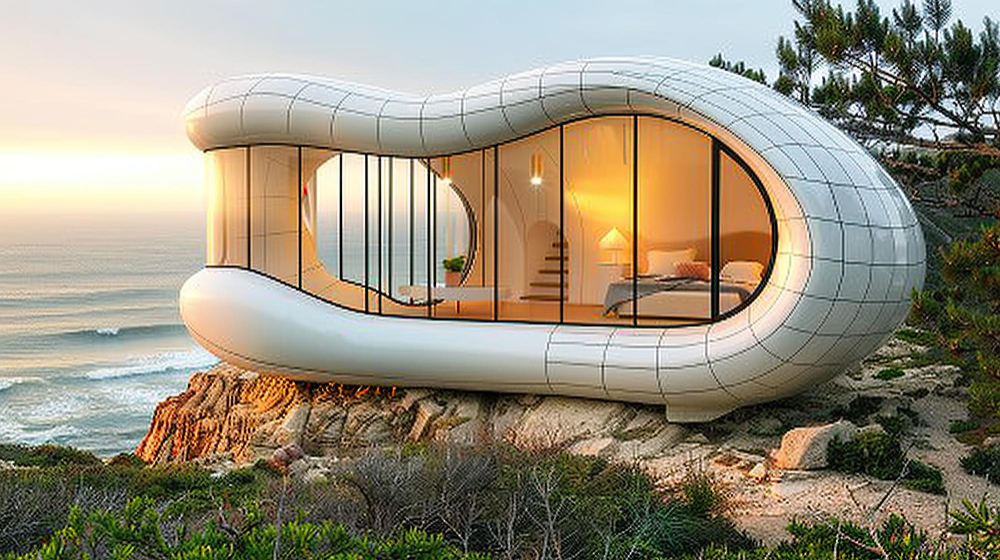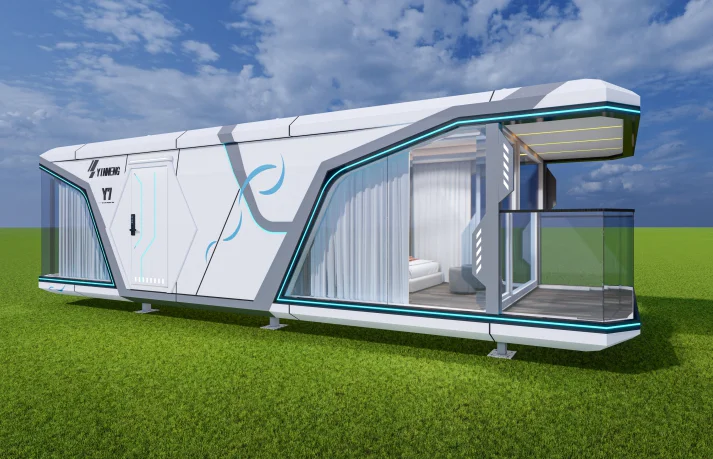Why You Should Consider Living in a Pod Home for Flexibility and Comfort
Why You Should Consider Living in a Pod Home for Flexibility and Comfort
Blog Article
Why Modular Homes Are the Future of Sustainable Living
Modular homes are progressively recognized as a crucial service for lasting living, supplying a blend of performance, cost-effectiveness, and environmental advantages. Their building in regulated environments substantially reduces waste and enhances precision, while the possibility for incorporating sophisticated energy-efficient systems places them as a forward-thinking choice in housing. In addition, the versatility of modular layouts allows for the combination of sustainable modern technologies and materials tailored to private needs. As we browse the difficulties of urbanization and ecological sustainability, one must think about how these homes can redefine our method to living areas.
Environmental Benefits of Modular Homes
The environmental advantages of modular homes stand for a substantial action towards lasting living. These homes are constructed in controlled factory settings, which significantly reduces waste produced during the building process. By maximizing products and lessening excess, modular building and construction adds to an extra reliable usage of sources contrasted to traditional building techniques.
Furthermore, modular homes are commonly created with power performance in mind. Several include innovative insulation techniques, energy-efficient windows, and lasting products, contributing to lower energy consumption. This can result in reduced greenhouse gas emissions over the life expectancy of the home, enhancing its total ecological profile.
The ability to transport and put together modular components on-site additionally reduces the carbon impact connected with building logistics. Additionally, numerous modular homes are built to be quickly upgradeable and adaptable, enabling property owners to implement lasting innovations, such as photovoltaic panels and energy-efficient home heating systems, in time.
Ultimately, the ecological advantages of modular homes not only advertise lasting living but likewise encourage a more liable approach to housing growth, straightening with worldwide initiatives to battle climate change and protect all-natural sources for future generations.
Cost-Effectiveness and Cost
Structure a home commonly stands for one of the largest monetary investments individuals make in their lifetime, and modular homes provide a compelling option for those looking for cost-effectiveness and price. One of the primary advantages of modular homes is their lower building costs compared to conventional site-built homes. The streamlined manufacturing procedure permits for significant savings on labor and materials, which converts to reduce costs for consumers.
Furthermore, modular homes normally have much shorter building and construction timelines. This not just lowers expenditures connected to funding and insurance but also mitigates the risks connected with rising cost of living and rising and fall market problems. Several customers discover that modular homes can be tailored to fit their spending plans without giving up high quality or style.
Furthermore, power performance is usually constructed right into the layout of modular homes, resulting in reduced energy expenses in time. Lots of suppliers focus on sustainable materials and practices, further enhancing the long-lasting monetary practicality of these homes. Overall, the combination of first cost savings, rapid construction, and recurring power performance makes modular homes an eye-catching choice for those looking to buy sustainable living without damaging the financial institution.
Efficiency in Construction
Modular homes not just provide monetary benefits however also succeed in construction effectiveness. The modular building weblink procedure involves the synchronised building and construction of components in a factory setup while site prep work takes place simultaneously. This parallel approach substantially minimizes the general timeline from fertilization to completion, usually cutting building and construction time by up to half compared to traditional techniques.
In addition, factory-controlled environments enhance quality control. By utilizing precision production techniques, modular homes are built to specific specifications, reducing waste and errors. This uniformity not only causes a better product however additionally contributes to Source sustainable practices by minimizing material waste throughout building and construction.
Additionally, using contemporary innovation and automation in the production procedure enables quicker assembly and lowered labor expenses. When the modules are transferred to the site, they can be successfully set up, better expediting the timeline. This streamlined process is not just advantageous for home builders however likewise lessens disturbances to the surrounding environment during construction.
Modification and Design Adaptability
A remarkable selection of modification alternatives identifies modular homes, enabling house owners to customize their living areas to meet specific requirements and preferences. This design flexibility is a characteristic of modular construction, allowing clients to select everything from layout and room layouts to coatings and components. Unlike conventional homes, modular styles help with a collaborative approach where engineers and contractors function closely with homeowners, making certain that each aspect aligns with specific way of lives and aesthetic desires.
Furthermore, modular homes can be conveniently reconfigured or increased, fitting changing family members dynamics or developing personal preferences. This versatility not just improves the home's functionality however also adds to long-term sustainability, as property owners can modify their rooms as opposed to seek brand-new housing solutions.

Future Patterns in Sustainable Housing
Arising fads in lasting real estate are reshaping the landscape of property construction, emphasizing green methods and cutting-edge modern technologies. One considerable trend is the integration of smart home technology, which enhances energy efficiency through automated systems that keep track of and optimize power intake. This not only decreases utility expenses yet also contributes to a reduced carbon footprint.
Additionally, the usage of sustainable products is ending up being increasingly common. Contractors are choosing reused, locally sourced, or swiftly sustainable products, which minimize ecological impact and support neighborhood economic situations. In addition, modular homes check this site out are gaining appeal for their decreased waste during building and construction and their versatility to numerous terrains and climates.
One more pattern is the incorporation of eco-friendly roofings and living wall surfaces, which improve air high quality and give all-natural insulation. These features also advertise biodiversity in city locations.
Conclusion
In conclusion, modular homes arise as a pivotal remedy for sustainable living, offering significant ecological benefits through minimized waste and power effectiveness. As patterns in sustainable real estate progress, modular homes are poised to play a critical function in promoting eco-friendly living methods for future generations.
Building a home commonly stands for one of the largest financial investments people make in their lifetime, and modular homes offer a compelling remedy for those seeking cost-effectiveness and price. One of the main benefits of modular homes is their reduced building and construction expenses contrasted to conventional site-built homes. Overall, the mix of first cost financial savings, rapid building, and ongoing power performance makes modular homes an attractive alternative for those looking to invest in sustainable living without damaging the financial institution.
Ultimately, the modification and design versatility offered by modular homes ensure that they are not just frameworks, but customized shelters that show the one-of-a-kind identities of their passengers while advertising lasting living techniques.

Report this page